The AMD Ryzen 5 1600X vs Core i5 Review: Twelve Threads vs Four at $250
by Ian Cutress on April 11, 2017 9:00 AM ESTBenchmarking Performance: CPU Legacy Tests
Our legacy tests represent benchmarks that were once at the height of their time. Some of these are industry standard synthetics, and we have data going back over 10 years. All of the data here has been rerun on Windows 10, and we plan to go back several generations of components to see how performance has evolved.
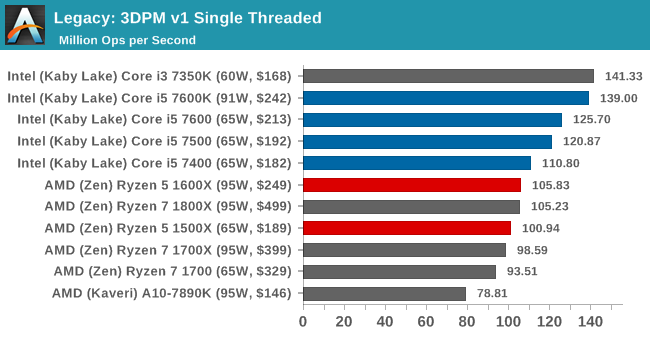
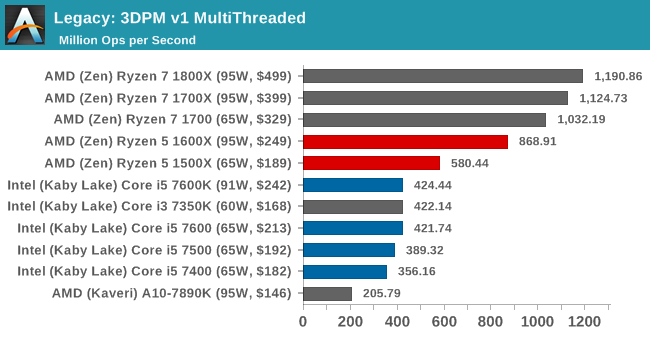
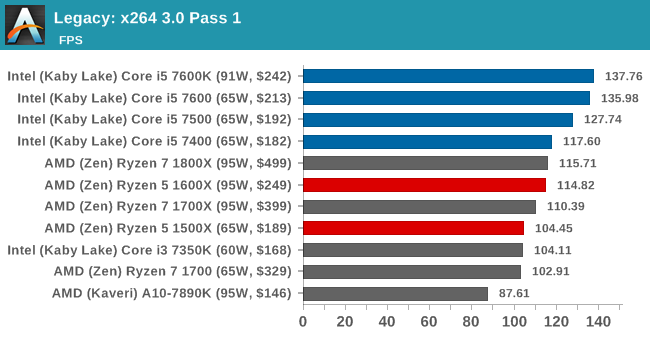
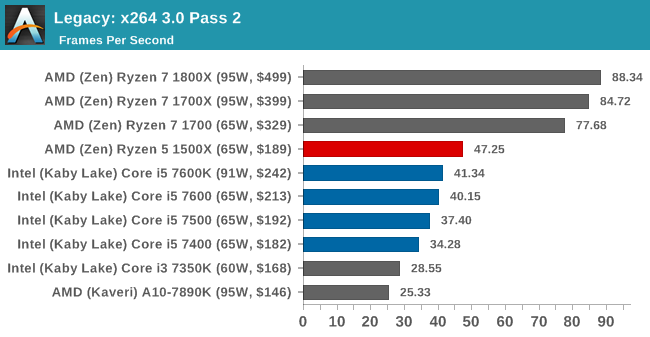
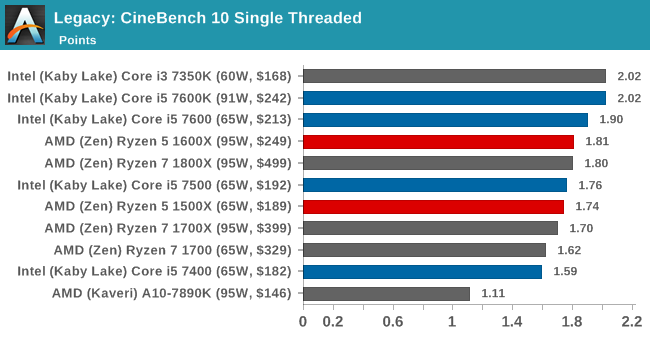
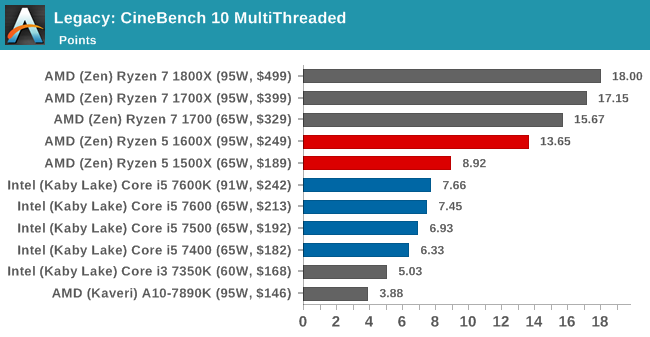
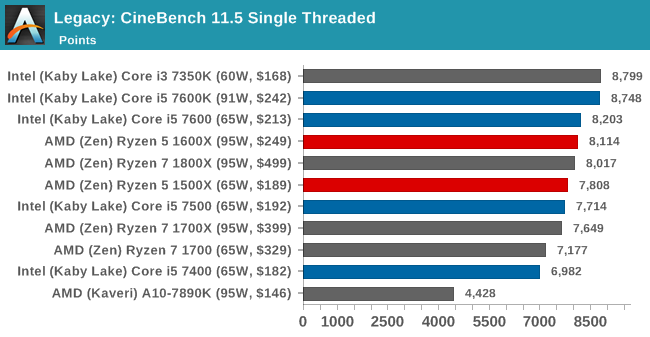
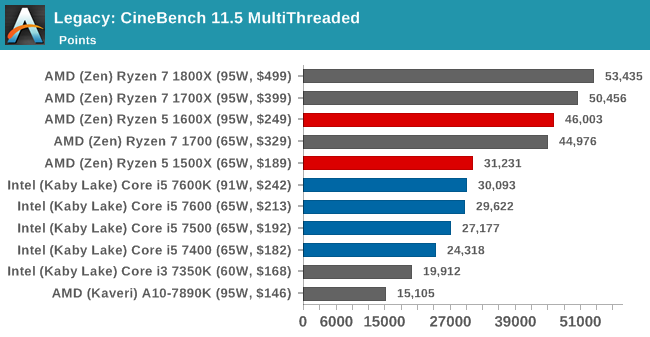










254 Comments
View All Comments
Kamgusta - Tuesday, April 18, 2017 - link
Are you replying to me? I talked about i7-7700 (NOT K), not i7-7700K.Which cope very well with some budget DDR4-2400MHz and a budget H270 board with no penalties whatsoever.
msroadkill612 - Wednesday, May 3, 2017 - link
Interesting. ta for sharing. pretty awesome price for the 1600/mobo bundle.How did the intel mobo compare for functionality do u think?
loguerto - Friday, April 21, 2017 - link
9 is not prime :)LawJikal - Friday, April 21, 2017 - link
What I'm surprised to see missing... in virtually all reviews across the web... is any discussion (by a publication or its readers) on the AM4 platform's longevity and upgradability (in addition to its cost, which is readily discussed).Any Intel Platform - is almost guaranteed to not accommodate a new or significantly revised microarchitecture... beyond the mere "tick". In order to enjoy a "tock", one MUST purchase a new motherboard (if historical precedent is maintained).
AMD AM4 Platform - is almost guaranteed to, AT LEAST, accommodate Ryzen "II" and quite possibly Ryzen "III" processors. And, in such cases, only a new processor and BIOS update will be necessary to do so.
This is not an insignificant point of differentiation.
systemBuilder - Friday, April 28, 2017 - link
I believe the Ryzen core is 20% slower than the Intel core, in instructions per clock. A hyperthread is only about 30% as fast as a full core. With both of these factors thrown in, 6 Ryzen Cores = 5 Intel cores. So the advantage of Ryzen is actually miniscule. It's why I sold all of my AMD stocks in February.willis936 - Thursday, July 27, 2017 - link
"sold all of my AMD stocks in February"I'm cringing.
systemBuilder - Friday, April 28, 2017 - link
Ryzen's cores are 20% slower than Intel's. A hyperthread is only worth (at best) 30% as much as a full core. Therefore, Intel offers 4 cores, AMD offers 6 * 0.8 * 1.3 = 6.24 cores, a decent bump but obviously not significant because few if any games are set up to use more than 8 cores, which in the best case for AMD would be (6 + 0.3 + 0.3)*0.8 = 5.28 cores, a small bump.Cooe - Monday, March 1, 2021 - link
Except Zen 1 was only about ≈5% slower in IPC vs Kaby Lake, not 20%...msroadkill612 - Monday, May 1, 2017 - link
Some thoughts from a ~newb, are that if 8 cores are the new black, then maybe 16GB (or 2GB per core) of ram, isnt as generous as it seems?Also, its a new paradigm. Tasks which taxed the cpu and thus historically avoided (software raid e.g.), can now be embraced with ~impunity.
"Normal" CPUs can handle 16 jobs before a queue forms, commonly, an increase by a factor of 8 for a prospective upgrader.
Gothmoth - Tuesday, May 2, 2017 - link
"...affords a comfortable IPC uplift over Broadwell....."yeah does it?
what is comfortable??.... 10%.... who are you trying to kid here?